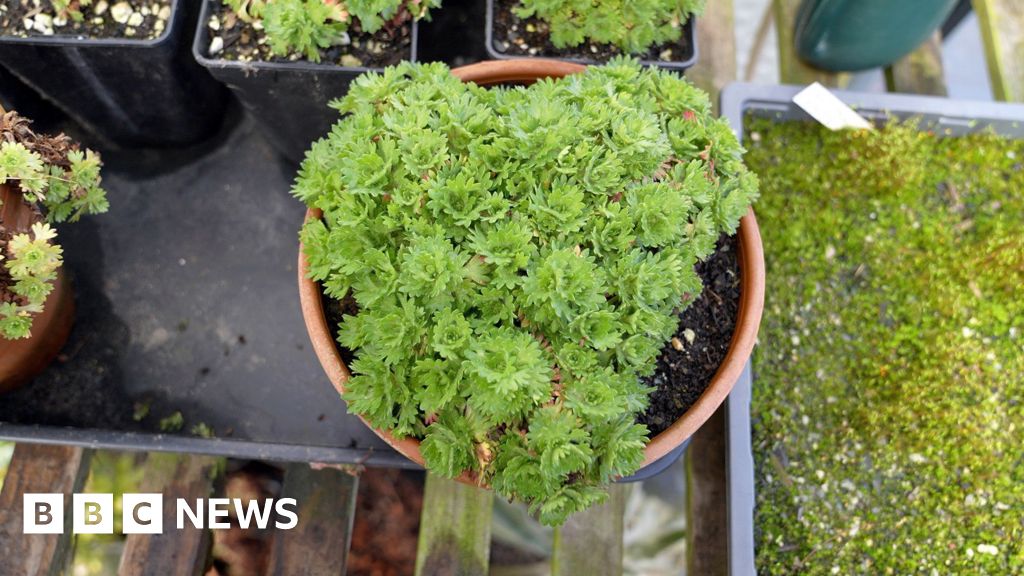- cross-posted to:
- upliftingnews@lemmy.world
- cross-posted to:
- upliftingnews@lemmy.world
A plant that went extinct in the wild has been re-introduced to the UK mainland. We can’t tell you the exact location - it’s a secret, to keep it safe. It’s just one small plant but with one in six species in the UK endangered, you’ve got to start somewhere. We were there the moment pioneering horticulturist Robbie Blackhall-Miles returned it to its native soil.
I first met Robbie at his nursery for threatened plants - tucked away in a quiet part of North Wales.
What he keeps there is so valuable, he can’t even get it insured.
He asks me to be careful how much we reveal - there is still a lucrative market for rare and special plants, often picked illegally, often fetching thousands of pounds.
“There’s only 30 of those trees left in the world,” he says, pointing at a pot.
This is the best summary I could come up with:
He asks me to be careful how much we reveal - there is still a lucrative market for rare and special plants, often picked illegally, often fetching thousands of pounds.“There’s only 30 of those trees left in the world,” he says, pointing at a pot.
We hiked a snaking path around the lake to a place called Tyll Du or, ominously in English, Devil’s Kitchen.Robbie stopped every few steps to point out rare plants that have managed to survive.By chance, I had walked here before.
“I’ve been up there on ropes, looking for it for six summers, just in case we were wrong,” he says, pointing up at sheer cliff faces.“The rosy saxifrage is about as a native as you can get in the UK,” Robbie says, perched on a rock looking serenely out on this dramatic landscape.
When the glaciers melted, the saxifrages stayed, thriving in the mountain environment.But their delicate appearance and beautiful flowers eventually made them a magnet for plant collectors - particularly Victorians who picked them for private collections.
Then habitat loss and poorly managed grazing in Eryri were the final death knell for the plant.Numbers fell dramatically, until it was gone from the UK mainland.The next part of the story has the quality of folklore - in 1962 a teacher and conservationist called Dick Roberts was in Cwm Idawl on a school trip.
We have lost 19% of monitored species in the last 30-40 years, turning the UK into one of the most nature-depleted countries on Earth.I invited Julia Jones, a professor of conservation at Bangor university, to Cwm Idwal to ask her how much difference bringing back this one small plant can make.The truth is that alone it won’t transform UK nature - conservation is hugely complicated and needs lots of different work, including protecting habitats from climate change, pollution and intensive land use.But Prof Jones says that this re-introduction acts as a flagship and “a reminder of just how much we have lost”.
The original article contains 1,156 words, the summary contains 330 words. Saved 71%. I’m a bot and I’m open source!
The next part of the story has the quality of folklore - in 1962 a teacher and conservationist called Dick Roberts was in Cwm Idawl on a school trip.
Bot removed the interesting part:
The next part of the story has the quality of folklore - in 1962 a teacher and conservationist called Dick Roberts was in Cwm Idawl on a school trip.
He picked up a piece of a plant that had washed down a path, and put it in his pocket. Unsure of what it was, he took it home and grew it in his garden.
All the rosy saxifrage now in the UK mainland goes back to that tiny plant - it saved the plant for future generations. About a decade ago Robbie was given a cutting to care for.
Meaning all currently known rosy saxifrage is genetically identical to that tiny plant that Dick fellow found by chance.
If he hadn’t, it would be completely extinct. Though it is always possible more still exist in the wild, and we just haven’t found any.



